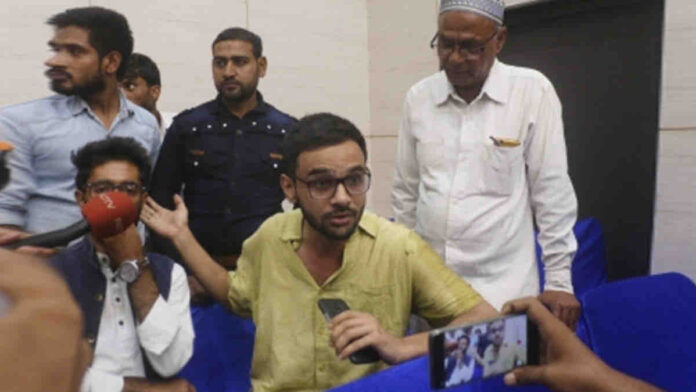The Supreme Court on Friday adjourned for two weeks the hearing on a plea filed by former JNU student Umar Khalid seeking bail in a case lodged under anti-terror law UAPA over his alleged involvement in the conspiracy behind the northeast Delhi riots of February 2020.
A bench of Justices Aniruddha Bose and Bela M Trivedi said the matter needs to heard on a non-miscellaneous day.
Tuesdays, Wednesdays and Thursdays are non-miscellaneous days in the apex court when matters which require detailed hearing are taken up.

Senior advocate Kapil Sibal, appearing for Khalid, agreed to the suggestion.
Supreme Court judge Justice Prashant Kumar Mishra had on August 9 recused himself from hearing Khalid’s plea.
Khalid’s petition challenging the October 18, 2022 order of the Delhi High Court, which had rejected his bail plea in the matter, had come up for hearing before a bench of Justices A S Bopanna and Prashant Kumar Mishra.
The high court had rejected Khalid’s bail plea, saying he was in constant touch with other co-accused and the allegations against him were prima facie true.
The high court had also said the actions of the accused prima facie qualified as “terrorist act” under the Unlawful Activities (Prevention) Act.
Activists Umar Khalid, Sharjeel Imam, and several others have been booked under the anti-terror law UAPA and several provisions of the Indian Penal Code for allegedly being the “masterminds” of the February 2020 riots, which left 53 people dead and over 700 injured.
The violence had erupted during the protests against Citizenship (Amendment) Act (CAA) and the National Register of Citizens (NRC).
Khalid, arrested by the Delhi Police in September 2020, had sought bail on grounds that he neither had any criminal role in the violence nor any “conspiratorial connect” with any other accused in the case.
Delhi police had opposed Khalid’s bail plea in the high court, saying the speech delivered by him was “very calculated” and he brought up contentious issues like Babri Masjid, triple talaq, Kashmir, the alleged suppression of Muslims and the CAA and NRC.







